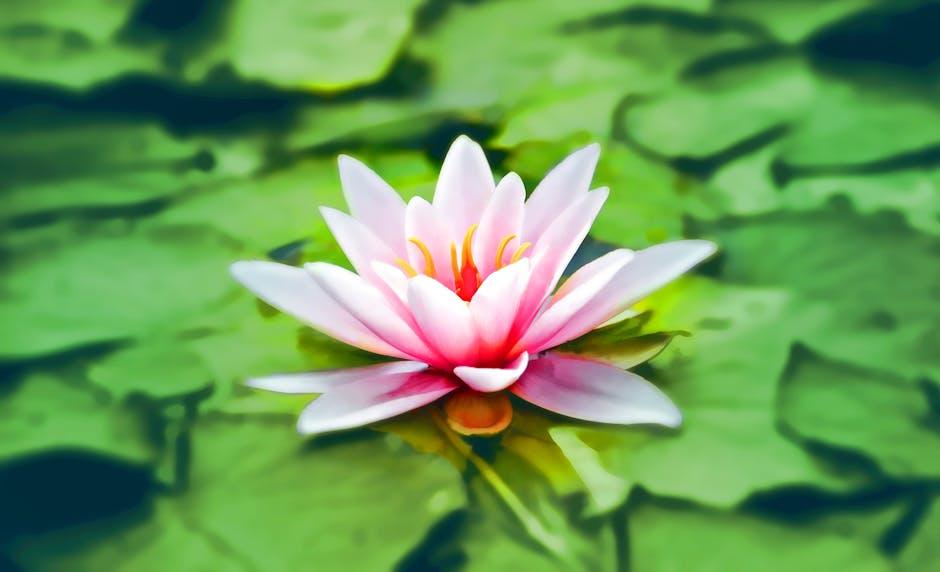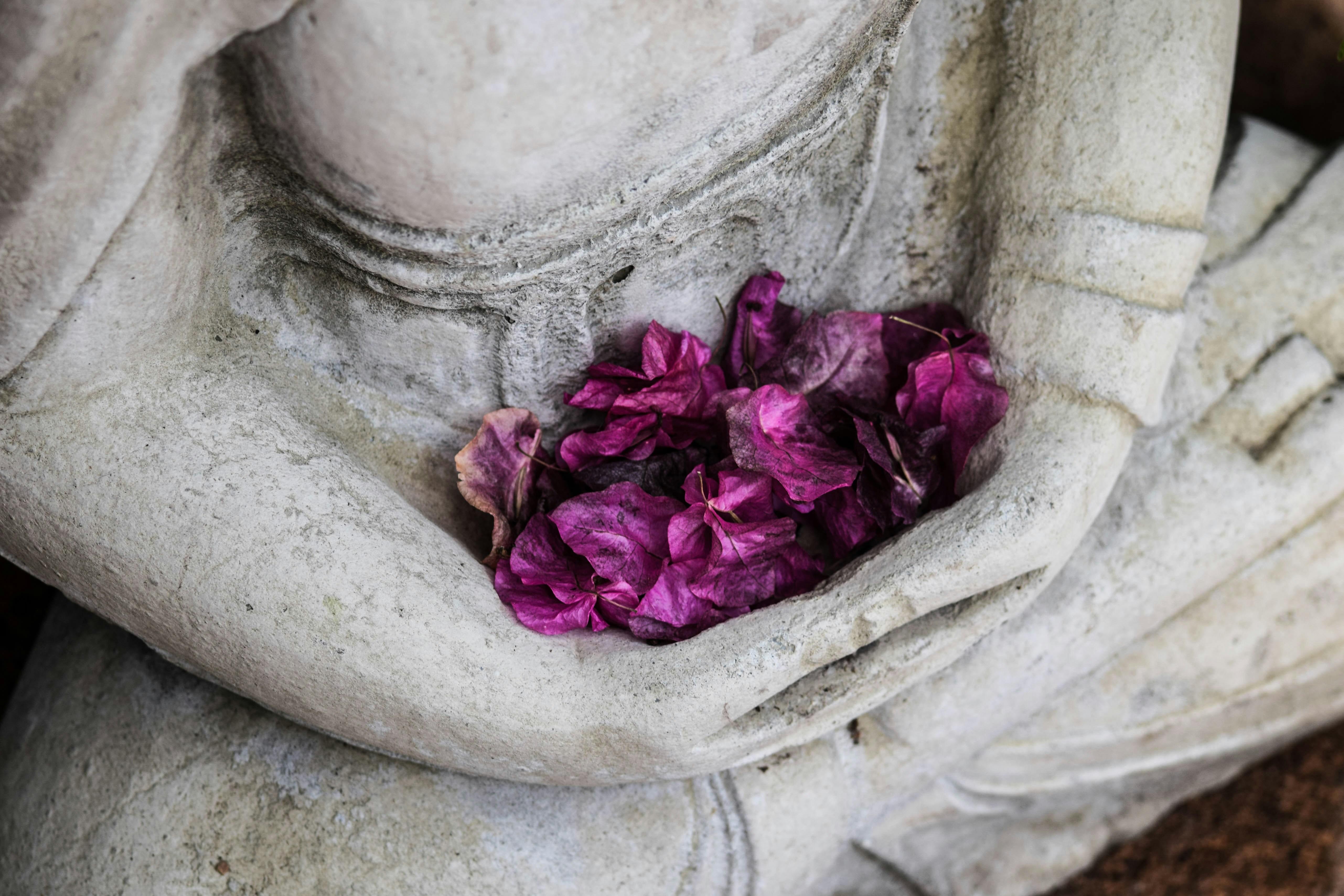In the serene world of meditation, where tranquility and enlightenment are often the ultimate goals, lies a paradox seldom explored. Meditation, an ancient practice embraced by millions seeking peace and clarity, is frequently portrayed as an unequivocal path to personal growth and well-being. Yet, beneath its calm surface, this journey can sometimes reveal unexpected challenges and complexities. As we delve into the question, “?” we unravel the nuanced layers of this timeless practice, exploring both its luminous benefits and the shadows it may cast. Join us as we navigate the delicate balance between mindfulness and the mind’s hidden corners, seeking to understand the full spectrum of experiences that meditation can offer.
Exploring the Shadows: When Meditation Unveils Unsettling Emotions
Meditation is often portrayed as a serene journey toward inner peace, yet it can sometimes lead us into the hidden corridors of our psyche, revealing emotions we may not be ready to face. As we sit in silence, the mind’s chatter quiets down, and the shadows within start to emerge. Anger, fear, sadness, or anxiety—emotions long buried can surface with surprising intensity, challenging the notion that meditation is always a calm and pleasant experience.
- Unresolved Past Experiences: As the mind slows, past traumas or unresolved conflicts may resurface, demanding attention and healing.
- Current Life Stressors: Meditation can sometimes amplify present-day anxieties, as it offers space for the mind to fully acknowledge these stressors.
- Existential Questions: Deep contemplation can lead to unsettling realizations about one’s life purpose and existence.
While these experiences can be unsettling, they are also an opportunity for profound growth and self-awareness. The key is to approach them with curiosity and compassion, allowing the journey to be a transformative process rather than a purely tranquil escape.
The Balance of Mindfulness: Navigating Potential Pitfalls in Meditation Practice
While meditation is often celebrated for its numerous benefits, such as increased focus and reduced stress, it’s important to acknowledge that the journey isn’t always straightforward. For some, the practice may inadvertently lead to unexpected challenges. Potential pitfalls can emerge, impacting one’s mental well-being if not approached with care and awareness.
- Overidentification: Some practitioners may become overly attached to achieving a certain state of mind, leading to frustration and anxiety when expectations aren’t met.
- Suppression of Emotions: In an effort to cultivate calmness, individuals might inadvertently suppress emotions, resulting in unresolved inner conflicts.
- Physical Discomfort: Prolonged sessions without proper guidance can lead to physical strain or discomfort, which might discourage continuation of the practice.
Being mindful of these potential hurdles allows individuals to cultivate a more balanced and enriching meditation experience. Embracing imperfections and seeking guidance when needed can transform these obstacles into valuable lessons on the path to mindfulness.

Embracing Discomfort: Transformative Growth through Challenging Meditative Experiences
In the realm of meditation, the path to enlightenment is often paved with moments of discomfort. These challenging meditative experiences can act as profound catalysts for personal growth. When we embrace the unease, we allow ourselves to delve deeper into the layers of our consciousness, uncovering truths that are often shrouded in the shadows of our psyche. This journey is not always about finding peace but about confronting the internal chaos that lies within. It is in these moments of discomfort that we find the raw material for true transformation.
- Self-Discovery: Facing discomfort can reveal hidden aspects of our identity.
- Resilience Building: Overcoming these challenges strengthens our mental fortitude.
- Emotional Release: Uncomfortable sessions may bring suppressed emotions to the surface.
While meditation is often associated with tranquility, it’s essential to acknowledge that its journey can be tumultuous. These challenging experiences, rather than being setbacks, can be viewed as opportunities for profound change. By leaning into discomfort, we cultivate a deeper understanding of ourselves and emerge with a more resilient and authentic sense of being.

Crafting Your Path: Personalized Strategies for a Fulfilling Meditation Journey
Embarking on a meditation journey is a deeply personal experience, often shaped by individual needs, goals, and preferences. While meditation is widely celebrated for its potential benefits, the path isn’t always straightforward or universally positive. Crafting a personalized strategy can help navigate the complexities and maximize the transformative potential of your practice. Consider these elements as you tailor your journey:
- Identify Your Purpose: Are you seeking stress relief, emotional balance, or spiritual growth? Clarifying your intentions can guide your choice of meditation style and focus.
- Experiment with Techniques: From mindfulness and loving-kindness to transcendental meditation, explore different methods to find what resonates with you. Each technique offers unique benefits and challenges.
- Adapt to Your Lifestyle: Consider your daily routine and find moments where meditation can seamlessly integrate, whether it’s a few minutes in the morning or a longer session before bed.
By embracing a flexible and personalized approach, you allow your meditation practice to evolve naturally, responding to your life’s changing rhythms. Remember, the journey is yours to shape, and there is no one-size-fits-all solution.
In Conclusion
As we draw our exploration to a close, it becomes evident that meditation, like any journey, is not a one-size-fits-all experience. While it offers the promise of tranquility and self-discovery, it also presents challenges that can be as enlightening as they are daunting. Just as a river carves its path through diverse landscapes, so too does meditation navigate through the varied terrains of the human mind. It is a journey marked by moments of profound stillness and unexpected turbulence, inviting us to embrace both with open curiosity. Ultimately, whether meditation is a positive journey may not be the most pertinent question. Instead, we might ask how this ancient practice can serve as a mirror, reflecting the intricacies of our inner worlds and guiding us, step by step, towards a deeper understanding of ourselves. As we step away from this inquiry, let us carry with us the notion that every journey is unique, and in that uniqueness lies its true value.
